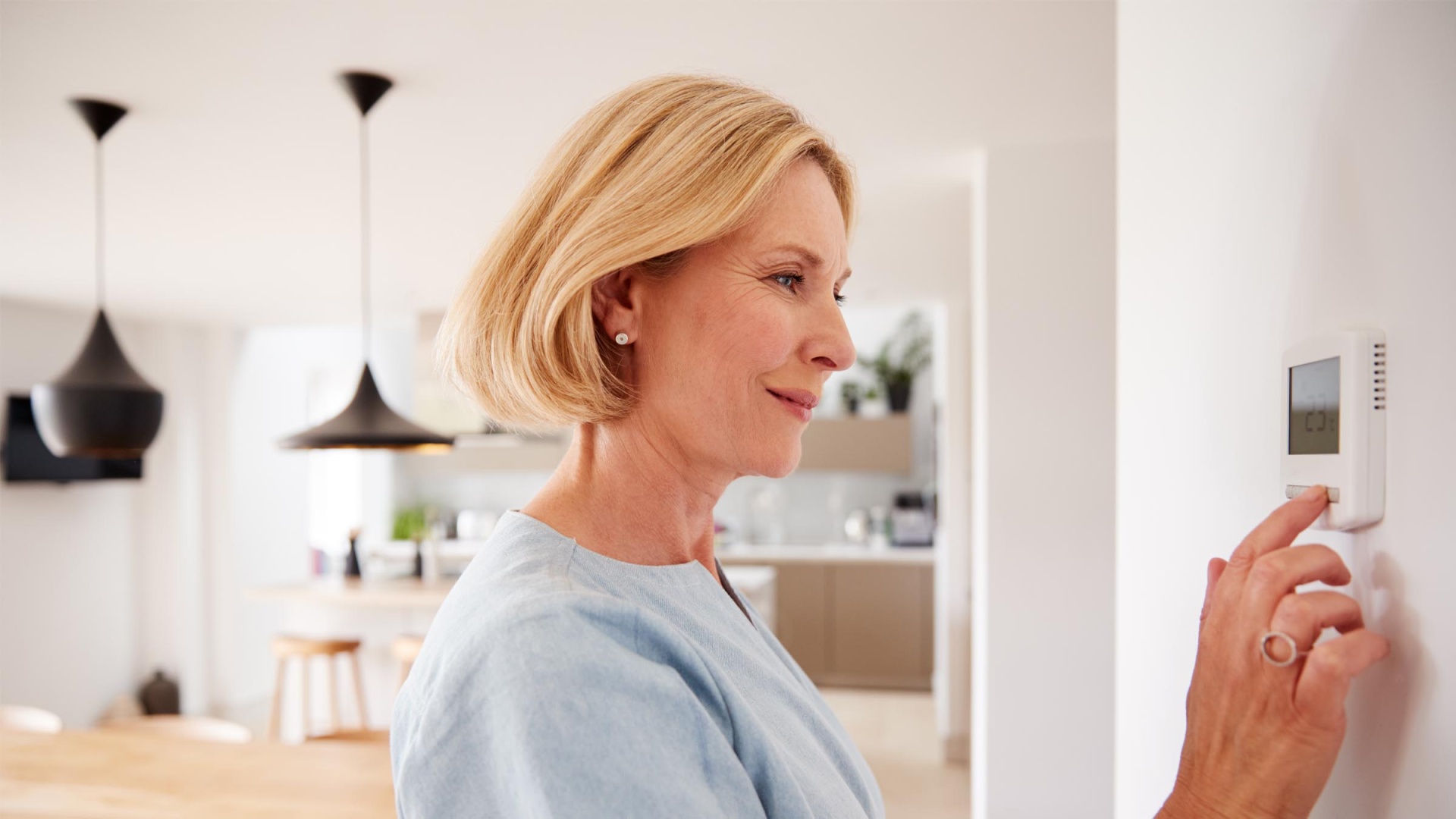HOW TO MAKE THE MOST OF YOUR AC OR ASHP UNIT THIS SUMMER
During our sweltering Manitoba summers, it’s important to run your air conditioning (AC) unit or air source heat pump (ASHP) as efficiently and effectively as possible. We’ve put together tips for both AC and ASHP units to ensure they operate at peak performance. Learn how you can keep cool while saving energy this summer. Plus, we’ve included a common myth that we’re officially busting!
KEEP YOUR UNIT RUNNING EFFICIENTLY & EFFECTIVELY
While the most energy-efficient option would be to leave your AC unit or ASHP off as much as possible, we understand that the summer heat can make us want to crank down the temperature on our thermostats and keep it that way. Here are some tips to keep your units running as efficiently as possible throughout these hot summer months.
- Keep your outdoor unit clean:
In order for your unit to run efficiently, air needs to be able to flow freely through the outside unit. Carefully brush or vacuum away any leaves, branches, grass, or debris that may have blown into your unit. If the coils of the outside or condensing unit are dirty, you can use the brush attachment from your vacuum to remove dirt or carefully spray them with your hose. Just be careful not to damage or bend the components, which can impact the performance of the unit. - Check the refrigerant lines:
Ensure your refrigerant lines are still properly insulated. If the insulation has frayed or exposed the lines, consider replacing the insulation sleeve. The insulation sleeve protects the system from excessive heat transfer and helps to prevent condensation. - Change your furnace air filter:
Inside, make sure the air is flowing by changing or cleaning your furnace air filter regularly. As air flows through, it collects dust and debris which eventually restricts air flow. We suggest changing your air filter with the change in season — about four times a year.
We recommend contacting a qualified technician to service your AC unit or ASHP annually to ensure it’s running at peak performance.
LIGHTEN THE LOAD ON YOUR UNIT
Another great way to save energy and money is to lighten the load on your unit as much as possible. Follow these tips to make sure your AC unit or ASHP isn’t working harder than it needs to.
- Don’t start your AC or ASHP too late in the day:
If the forecast is predicting hot weather, make sure to turn your AC or ASHP on before the temperature outside gets above the set temperature in your home. Starting your AC too late in the day will have it playing “catch up,” making it work harder to cool your home. - Keep your windows closed:
Make sure all your windows are closed while your AC or ASHP is running. This will prevent warm air from entering your home, adding unnecessary cooling load on your system. - Take advantage of cooler days:
When the outside air temperature is cooler than your set indoor temperature, switch off your unit and open the windows for free cooling! - Avoid unnecessary heat from appliances:
If it’s already hot outside, try not to add extra heat indoors by using large appliances. If you can, cook your meals outside on the grill or use smaller appliances, such as air fryers and microwaves, to avoid adding extra heat inside your home.
MYTH BUSTER
MYTH:
It actually uses more energy to adjust (set back) your thermostat based on time of day or if you’re away from home, rather than leaving it at a consistent temperature.
BUSTED:
While your unit may need to work a bit harder to bring the temperature down after a setback, a setback of just 1°C over an eight-hour period used 2.4% less electricity than if you were to maintain the lower temperature.
Bottom line: Any reduction in the use of your AC unit or ASHP will result in energy (and energy bill) savings. Raise your thermostat by a few degrees while you’re away from home or overnight — it can help you save energy and money!
Longer temperature setbacks (lighter load on your AC or ASHP) = energy savings
Looking for more summer savings tips? Check out the rest of the articles in our summer series!

